The Community Environment Fund has now closed, however, the WMCA are looking to better understand the types of projects that may be seeking grant support in the future, like those projects funded through the Community Green Grants and Community Environment Fund programmes. To help us do this, please complete this short survey and return to environment@wmca.org.uk.
Introduction to the Community Environment Fund
The Community Environment Fund was launched in October 2023 by the West Midlands Combined Authority (WMCA) with £1m of grant funding available to support communities in delivering initiatives that improve the environment and people's lives.
Twenty-seven grants of up to £100,000 were awarded for projects under the following project themes:
- Natural environment - to protect, restore and enhance nature and wildlife.
- Access to green space - to provide better access to and community use of green space for health and wellbeing – similar to the Community Green Grants programme.
- Climate adaptation - to make communities more resilient and prepared for the impacts of climate change
- Circular economy - to reduce waste and keep resources and materials in use for as long as possible.
- Environment awareness - to improve knowledge of environment issues and support behaviour change.
The Government awarded £70 million from the Birmingham 2022 Commonwealth Games to help communities in the West Midlands. Some of these funds were to be used to help improve the environmental sustainability of the region through community action.
Following feedback, this funding has allowed the WMCA to build on the success of its Community Green Grants programme which helped community groups and wildlife charities increase access to nature and improve biodiversity. The WMCA has used some of this funding to deliver the Community Environment Fund, allowing community groups to apply to the Fund and act on a wider range of environmental issues.
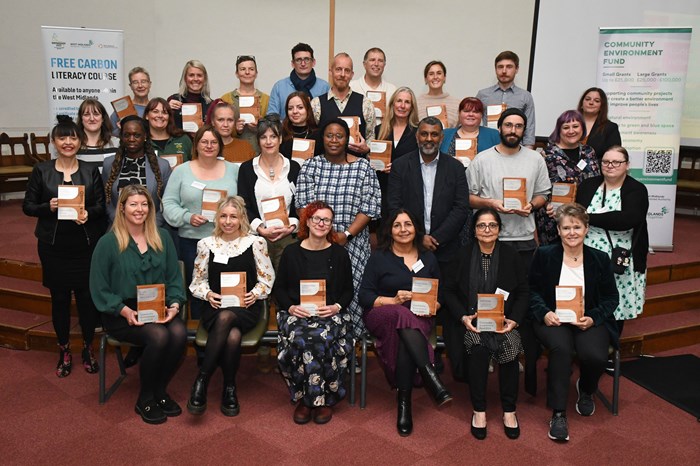
The funded organisations celebrated their projects at the CEF celebration with Deputy Mayor of the West Midlands Councillor Sharon Thompson
Awarded Projects:
Please see the projects that have been awarded funding as part of the Community Environment Fund below.
The press releases associated with these projects can be found here:
£100,000 of funding for region’s first construction materials reuse hub
Environment projects across the West Midlands share £300,000 of new funding
Buglife, The Midlands Crayfish Partnership (Birmingham, Dudley, Sandwell Wolverhampton)- £59,430 to map existing native and non-native crayfish populations, coordinate conservation efforts, and work with the Sealife Centre in Birmingham on a breeding programme to boost declining numbers of native species. The project will also include hosting walks, talks, workshops and other family activities to raise awareness of how crayfish help to maintain healthy watercourses and as a food source for fish, birds and mammals.
Severn Rivers Trust, Coventry Rivers Citizen Science (Coventry)- £36,500 to train 30 volunteers and engage 1000 people through events in a citizen science project focusing on river health along the River Sowe in Coventry. The Coventry Rivers Citizen Science project looks to build a picture of the health of the river Sowe to inform local and regional decisions on land and water management.
All Saints’ Action Network, All Saints Repair Cafe (Wolverhampton)- £25,000 to open a Repair Café at its community hub and wood recycling centre.
Carriers of Hope, What Comes Around, Goes Around (Coventry)- £25,000 to continue its What Comes Around, Goes Around project by providing hundreds more people experiencing poverty, primarily asylum seekers, refugees and Roma people from Eastern Europe, with essential items such as baby equipment, furniture, electrical items, bikes and toys, reusing unwanted items that would otherwise be destined for landfill.
Make Good Arts, Repair and Share Sandwell (Sandwell)- £13,320 to grow its Repair and Share project by providing sewing machines and other resources in even more community venues to help local people to repair, share and remake clothing, saving them money and diverting hundreds of items of clothing away from landfill.
ReBuild Site CIC, The Reuse Hub (Wolverhampton)- £100,000 to set up the region’s first reuse hub to take surplus materials from construction sites, builders' merchants, wholesalers and others in the supply chain to sell them on to local small traders, DIYers, gardeners and crafters at a substantially discounted cost, diverting it away from landfill.
The Active Wellbeing Society, Repair & Skill Share at the Share Shacks (Birmingham)- £99,544 to expand its Share Shack project with repair and skill workshops at its sites across the city, helping local people to fix their own broken items such as electrical equipment and clothing – saving them from landfill.
Birmingham Botanical Gardens, Trees Over Time (Birmingham)- £24,990 for a pilot research project to address the need to understand the impact of climate change on the tree canopy in Birmingham. Conducted in partnership with local community outreach groups, and the University of Birmingham, the project looks to help people, the natural environment, and infrastructure to be more resilient and less vulnerable to the impact of heat, drought, and flood events.
BME United, Together We Can Make Difference (Wolverhampton)- £24,760 to deliver training to approximately 240 members of BME communities in Wolverhampton to enable them to be more resilient and prepared for the impacts of climate change.
Holyhead Road Allotments, Future Proofing Community Food Growing (Coventry)- £18,707 to transform an area of the site that has become water-logged due to climate change, using more sustainable practices such as habitat creation, water conservation, raised beds alongside climate adaptation workshops for allotments holders and local gardeners.
Aspire4u CIC, Dudley Support Circles (Dudley)- £8,033 to reclaim an abandoned garden near to the centre of Dudley by establishing a gardening group. Horticultural skills will be developed, as well as improving the mental well-being of volunteers and visitors, enhancing environmental awareness, and improving access to green space in Dudley.
Birmingham and Black Country Wildlife Trust, Dudley's Paths to Nature's Recovery (Dudley, Sandwell)- £99,605 for Dudley’s Path to Nature Recovery project to help connect more people in Dudley and Sandwell to nature by creating new walking routes and improving wildlife habitats through the Black Country Geo Park.
Birmingham Settlement, Green Minds (Birmingham)- £19,526 to develop a 3-acre site at Edgbaston Reservoir into a natural, safe, and welcoming community green therapeutic space in collaboration with Living Well Consortium (LWC) NHS Talking Therapies.
Canal and River Trust, Wild Waterways (Birmingham, Wolverhampton, Walsall)- £100,000 to expand its Wild in Birmingham project to improve the natural environment with communities around sections of waterway in Birmingham, Walsall and Wolverhampton.
EKHO CIC, Creating Greener Communities (Dudley)- £25,000 has been awarded to install a composting toilet allowing greater accessibility; construction of a cob oven using clay on site for plot to plate education sessions; and a community sharing facility offering access to gardening, crafting and sustainability resources such as literature, pots and seed swaps. This builds upon the success of the WMCA Community Green Grants funded wheelchair accessible wellbeing garden previously created by EKHO CIC within Hawbush Gardens.
Growth Path Services (formerly Kingstanding Regeneration Trust), Biodiverse Brookvale (Birmingham)- £13,148 to increase biodiversity and community use of Brookvale Park, Erdington, through a programme of planting and events while offering training and qualifications to NEET young people.
Norton Hall Children and Family, Ward End Park Project (Birmingham)- £24,825 to create a new allotment on an unused balcony at the Dolphin Women’s Centre in Ward End Park and to make improvements in the Forest School area.
People for People, Smethwick Community Garden (Sandwell)- £21,878 to clear waste and improve access to three plots within Londonderry allotments in Smethwick. A nature focused community garden space will be created offering regular activities to encourage participation from diverse communities.
Woodgate Valley Urban Farm, Community engagement space and an eco-toilet (Birmingham)- £15,100 to provide new facilities and opportunities for more local people to get involved in its practical nature-based activities.
Birmingham TreePeople, Street Tree Project (Birmingham)- £12,765 grant to train new volunteers to survey young street trees within the city. This will help to identify those trees in a poor condition so they can be quickly replaced, identify the possible causes of poor condition, and inform future planting choices.
Birmingham County Football Association, Save Today, Play Tomorrow- Carbon Literacy for Grassroots Football (Birmingham, Wolverhampton, Coventry, Dudley, Sandwell, Solihull, Walsall)- £25,000 to train up 10 football climate champions and put 500 football club volunteers through Carbon Literacy for Grassroots Football training to help them reduce waste and lower their energy usage and bills.
Caldmore Village Festival, Caldmore Environmental Education Centre (Walsall)- £24,995 to evolve Caldmore Community Garden into a nature, environment and climate change education centre, hosting gardening, conservation, climate change, and environmental sustainability workshops, events and other activities to help local people to reduce their own waste, carbon emissions and energy bills by becoming more energy efficient.
Castle Bromwich Hall and Gardens Trust, From the ground up (Solihull)- £21,292 to deliver a range of activities to include repair cafés, home food growing drop-in days, and foraging and cooking sessions to encourage behaviour change amongst visitors.
Ryecroft NRC, The Greenway (Walsall)- £8,202 to deliver a climate festival, climate training, and guided walks and cycling along the Greenway route in Walsall.
Saathi House, Aston Environment Awareness (Birmingham)- £20,125 to train 90 local women as environment champions to promote sustainable living practices, such as waste reduction, efficient cooking, recycling, and energy conservation, within their families and communities.
The LEAF Project (Linking Environment And Farming) Creating Conscious Consumers (Wolverhampton, Sandwell, Birmingham)- £25,000 to run farm visits and workshops for 1,200 more children at inner city schools and youth groups across Birmingham, Wolverhampton and Sandwell to improve their understanding of where food comes from and how it is produced, helping them to become conscious consumers in the future.
Wildside Activity Centre, Natural Learners - Environmental Activity Programmes for Young Learners (Wolverhampton)- £24,400 to run more hands-on activities in its unique natural learning environment to teach school-age children about the natural world, the importance of conservation and environmental issues, and become ambassadors for positive environmental change.

Birmingham TreePeople
2,000 street trees have been surveyed to identify dead or diseased trees, and for maintenance to be carried out to ensure the healthy growth of the urban tree canopy. This activity which helps keep the urban tree canopy healthy can reduce localised temperatures during very hot weather, reduce flood risk and lessen sudden pressures on storm drains by slowing rainfall.

Make Good Arts
The Repair and Share project in Sandwell is being expanded, with sewing machines being provided to communities to help local people repair clothing.

Buglife
Buglife’s ‘The Midlands Crayfish Partnership’ project has been on a rescue mission to save our native, White-clawed Crayfish. These endangered crustaceans play an important role in keeping our waterways clean.

ReBuild Site CIC
The region's first reuse hub has been set up in Wolverhampton to reuse surplus materials from construction sites and save materials from landfill. Follow them on their Facebook page for updates on bargain stock and activities being held.

The Active Wellbeing Society
The ‘Repair & Skill Share at the Share Shacks’ project has diverted a huge range of items from tools to household electrics, toys, furniture, and craft materials from becoming waste, keeping these items in use for the community and making an estimated saving of more than £115,000.
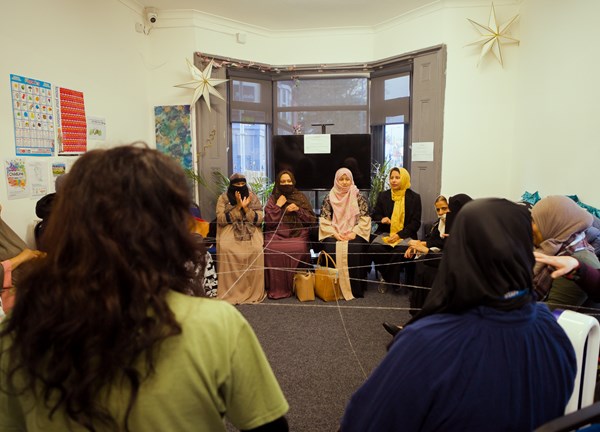
Saathi House
The ‘Aston Environment Awareness‘ project has brought local women together to learn about living more sustainable lives. Here, the group are learning about how species and habitats are connected, and how our actions can have far reaching effects.

Caldmore Village Festival
The ‘Caldmore Environmental Education Centre’ project has benefited over 2000 local people, providing 25 volunteering opportunities at their community garden, and 36 people with training and skills.
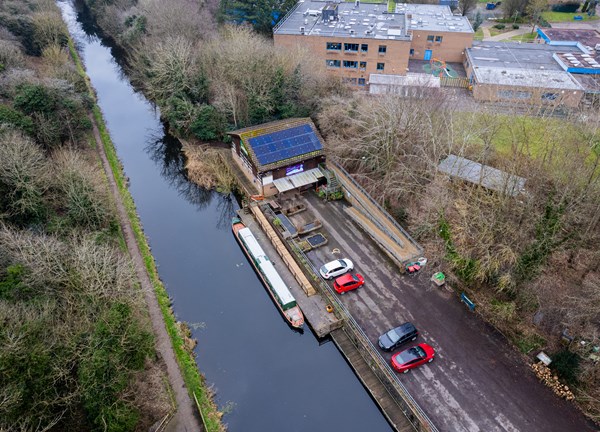
Wildside Activity Centre
The ‘Natural Learners - Environmental Activity Programmes for Young Learners’ has offered outdoor adventure activities including woodland crafts to engage with their community.
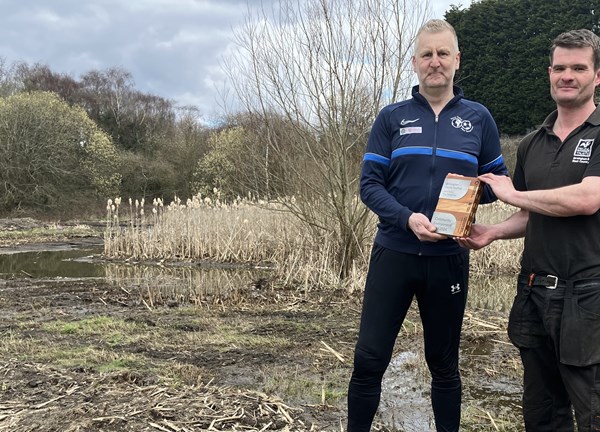
Birmingham County Football Association
As an addition to the ‘Save Today, Play Tomorrow - Carbon Literacy for Grassroots Football’ programme, with the support of the Birmingham and Black Country Wildlife Trust and CEF funding, wetland habitat has been provided at the edges of Hingley Playing Fields in Cradley Heath which will benefit the community by helping to reduce flood risk to the sports field.
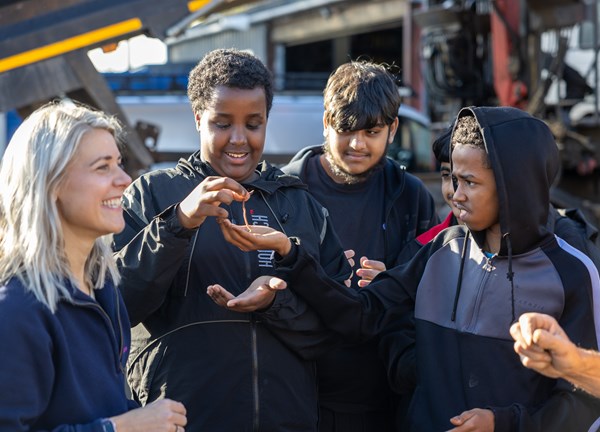
LEAF (Linking Environment and Farming)
Food production has been brought to life by LEAF’s ‘Creating Conscious Consumers in Wolverhampton, Sandwell and Birmingham’ project. West Midlands schools have benefited from materials and resources providing opportunities for long-term practical learning, while inner city children have experienced farming first hand, learning about its connection to the food they eat and the impacts of our food choices.
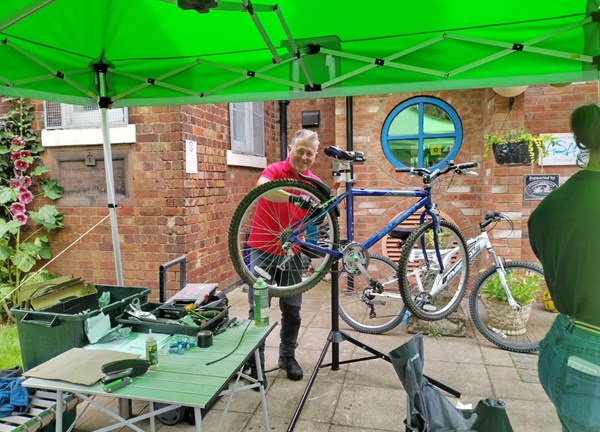
ASAN
The ‘All Saints Repair Café’ project has saved 1753 items from becoming waste, saving more than £6,900 by keeping items in use. The community have benefited from opportunities to volunteer and gain new skills.
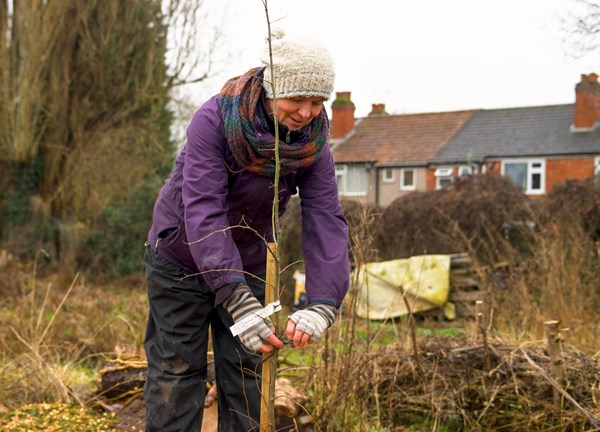
Holyhead Road Allotments
The ‘Future Proofing Community Food Growing’ project has reclaimed water-logged allotment space and allowed half of the space to be brought back into productive food growing use, while half has been enhanced as wet woodland and meadow habitat for nature. Opportunities for volunteering have been provided, aided by a new communal shelter/classroom area to support events and knowledge sharing.
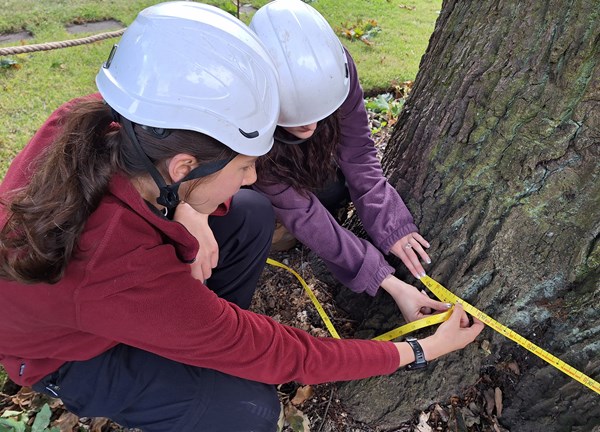
Birmingham Botanical Gardens
Working with volunteers and partners in the region, valuable tree data has been collected to gain an understanding of how well different tree species perform in Birmingham. In addition, 640 free visits have been provided to groups working with the most vulnerable people in our region to engage in citizen science workshops, writing workshops, and creative engagement activities to help them learn about the environment and the tree canopy.
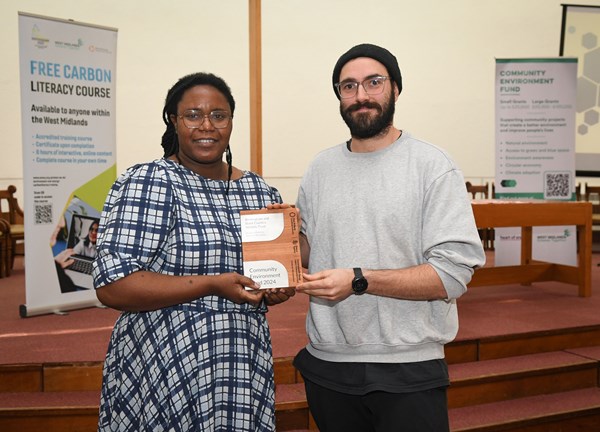
Birmingham & Black Country Wildlife Trust
The ‘Dudley's Paths to Nature's Recovery’ project has seen creation and enhancement of habitats, the installation of new paths and steps, and community events which have allowed volunteers to gain a greater appreciation for green spaces, and in some cases, expand their interest, starting a journey into ecological work.
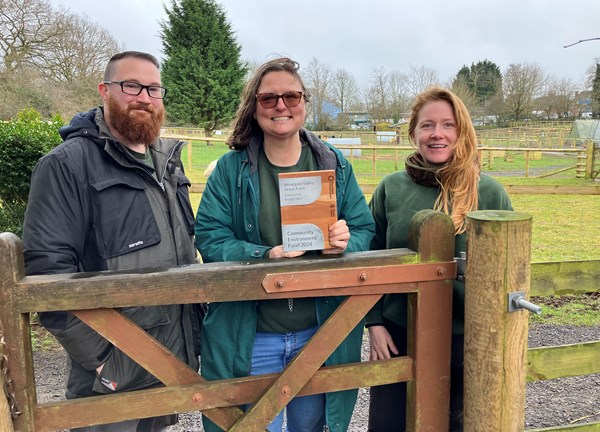
Woodgate Valley Urban Farm
The ‘Community Engagement Space’ project has supported participants in obtaining AQA awards in animal care and allowed a greater number of groups to access their green space for longer, including those with additional needs.
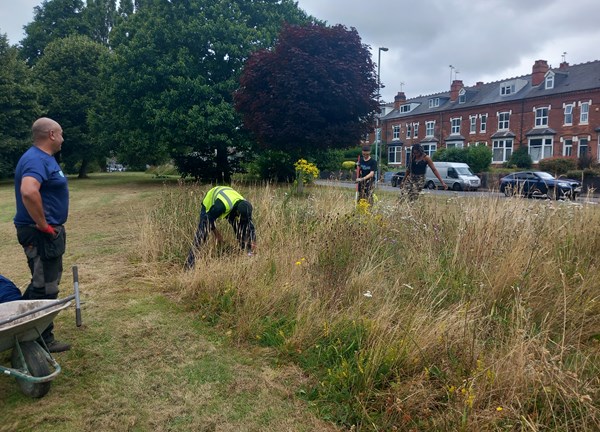
Growth Path Services (formerly Kingstanding Regeneration Trust)
The ‘Biodiverse Brookvale’ project has seen 18,500 bulbs and wildflower plugs planted in Brookvale Park, while 43 NEET young people gained skills to help them into employment and a Friends of Brookvale Park group has been formed to help support future enhancements to the park for nature and the local community.
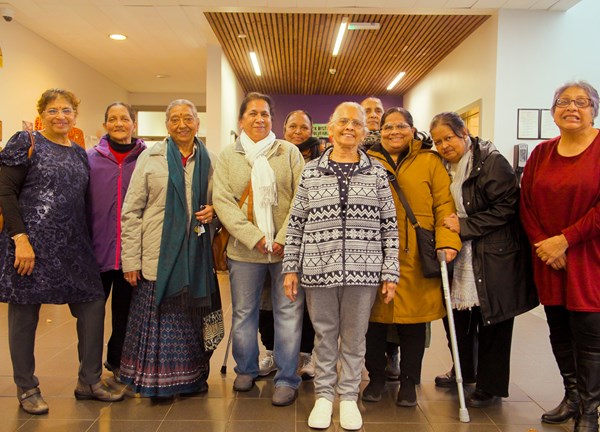
BME United
The ‘Together We Can Make Difference’ project has helped the community become more resilient to the threats of climate change by equipping participants with practical knowledge and skills around heat stress, drought and flooding, and promoted knowledge sharing and the formation of local adaptation strategies.
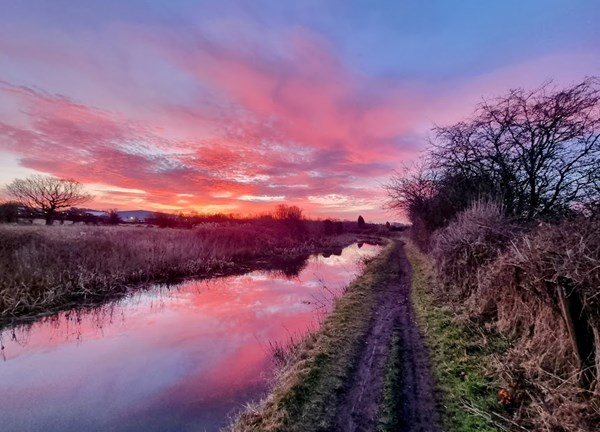
Ryecroft NRC
‘The Greenway’ project engaged with the community promoting environment awareness and providing access to a 6-mile walking route. Working alongside partners, trees have been planted along the canal side and community litter picks carried out.
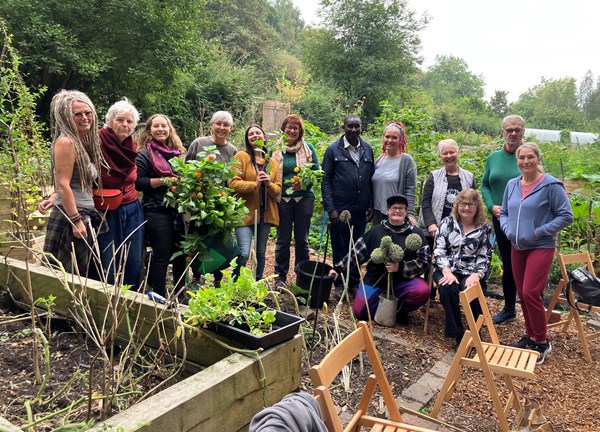
EKHO CIC
The ‘Creating Greener Communities’ project has increased access to green space and promoted living sustainably through its Share Shack, installation of a cob oven and an all-access composting toilet, and programme of community events.
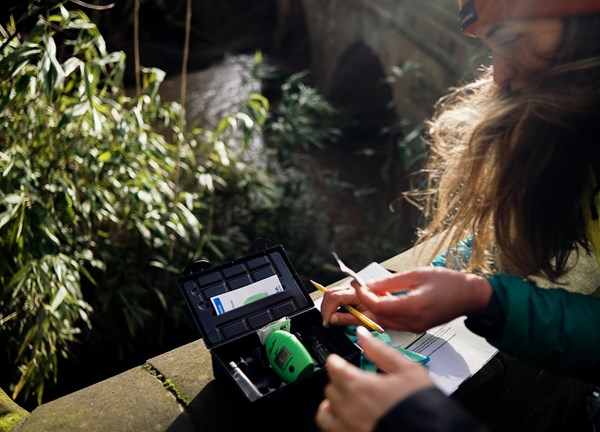
Severn Rivers Trust
15 water quality sites have been established at points along the River Sowe in Coventry. Volunteers have engaged with the blue space, learning about river health, participating in citizen science and helping to clean up the area during litter picking events.
Case studies
Watch the videos below to find out more about some of the Community Environment Fund projects.
Contact us
If you wish to speak to our team please contact us at communityenvironmentfund@wmca.org.uk
Delivered as part of the Commonwealth Games Legacy Fund

